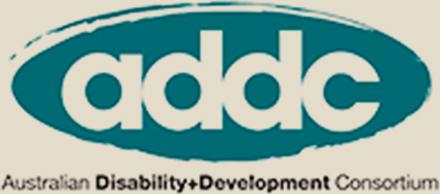KIT Blog
What are Self-Help Groups (SHG)?
-
 The Leprosy Mission Australia
The Leprosy Mission Australia
- Aug 10, 2021
- Uncategorized
You may have noticed that The Leprosy Mission Australia supports many projects with Self-Help Groups (SHG)s. A SHG is a term loosely used to describe a group of people in the community who come together to address a common problem. The term SHG is used to describe different types of groups depending on the context. In Australia, a SHG is usually seen to be a group of people with a common difficulty banding together to provide social/emotional support to assist each other to overcome the challenge (e.g. a gambling addiction or an alcohol problem). Whilst in the development context, a SHG takes on a slightly different definition.
What is a SHG in the development context?
As you are aware, poverty is a significant problem in many developing countries and often people with leprosy, disability and their families are amongst the poorest in society. People marginalised by society are often overlooked – they are unable to access loans from banks as they do not have assets to use as a guarantee, they are often not eligible for government supports and if they are able to access loans, often the interest is extremely high, making it nearly impossible for them to repay the loans. Access to finances are important at the initial stages of looking for a job, starting a business and earning an income. This is true not just in developing countries but even here in Australia. If you think back to when you first started to look for a job, you may have needed money to pay for a professional registration, to buy clothes to ensure you looked presentable for your interviews and maybe pay to have checks conducted. Therefore, when they are unable to access finances, people require support to help them with this initial startup. This is where SHGs come in. Our projects working with the local communities will support people with leprosy, other disabilities and their families to form SHGs. There are various models and gradients of support offered in establishing a group, depending on the level of poverty, education and resources that group members have access to. The diagram below provides a general overview of the SHG model supported in our projects. Please note, the model of SHGs differ slightly between projects depending on their context. 
Why are SHGs so important?
SHGs provide people with opportunities to learn new skills, make their own decisions and establish sustainable livelihoods that allow them to gain independence. For people living with leprosy, it allows them a chance to become an active, contributing member in their community and demonstrate that, like their neighbours, they can also provide for themselves and their families. This helps to decrease the discrimination. Our projects provide members with education on establishing an organisational structure, book keeping, finances, business strategies and new skills that can be put to use in a business. As a result, SHG members will have lifelong skills to sustain an income long after the project is completed. In addition, as SHG members become more successful, they are then encouraged to pass on their skills or financially support those in their community who are less able. As a result, SHGs have a positive flow on effect to others, thus improving the quality of life for the whole community.
Why do we not have this type of SHG in Australia?
In Australia, we usually do not see this type of SHG, as there are other types of provisions and more readily available government supports for those in financial hardship.
What is the next step after SHGs?
As SHGs become established and run independently, the projects support them to become a registered cooperative or a disability organisation. Cooperatives and disability organisations allows for larger groups of people to amalgamate their resources and establish more formal business structures. Becoming registered unlocks opportunities for the group to access government or non-government grants and other benefits that would previously have been unavailable to them as individuals or as a SHG. This then allows groups to look at larger business ideas thus increasing their financial security. For members who had previously lived hand to mouth, not knowing if they will earn enough daily to provide meals for their family, this is a life changing achievement.












